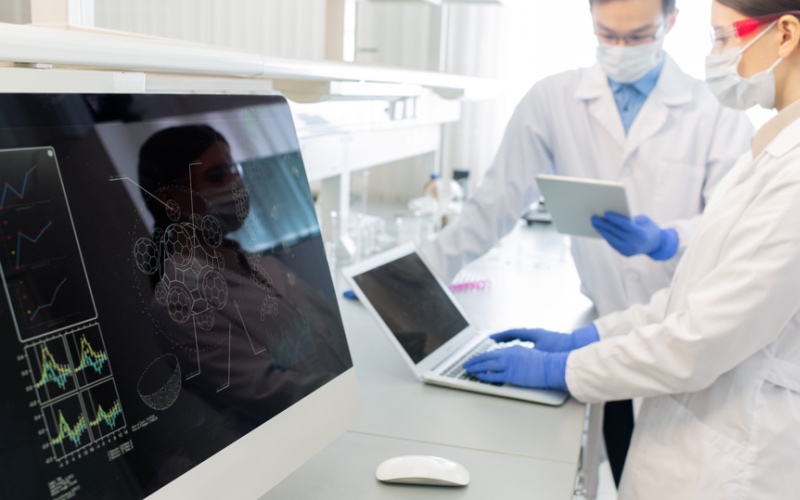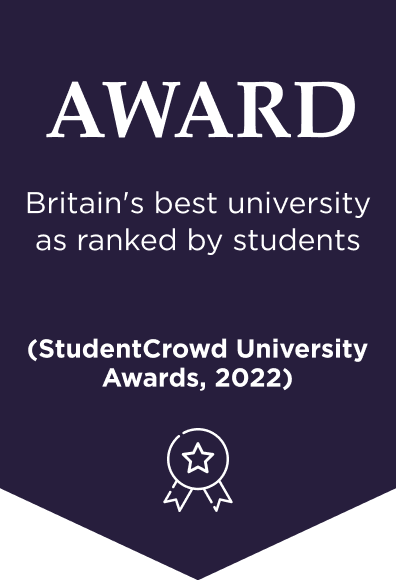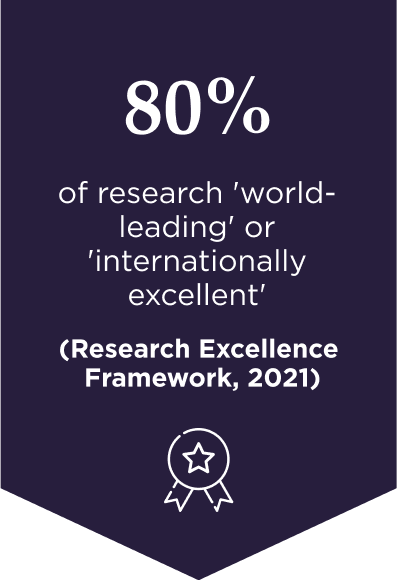What is computational modelling – and how does it relate to healthcare?
Posted on: April 3, 2024by Ben Nancholas

Computational modelling uses computer simulations to study complex systems, via a combination of physics, technology and informatics, and maths. By inputting and adjusting numerous variables within a machine learning (ML) or artificial intelligence (AI)-based model, computer scientists are able to observe outcomes and conduct countless simulated experiments.
This innovative tech has found a natural home within the medical and healthcare industry – where it’s revolutionised how clinicians are able to tailor and target the treatment of individual patients. The medical sector produces vast amounts of big data – from bioinformatics and genomic information to electronic health records (EHRs), x-rays and medical imaging, and environmental factors – which can be analysed and used to optimise patient care and health outcomes. The ability to process and utilise such large-scale, highly complex datasets via neural networks has changed the face of both clinical practice and biomedical research.
What are the advantages of using computational models in personalised medicine?
The sophisticated computational models and deep learning algorithms in use today enable us to study complex biological systems at multiple levels, via a process known as multiscale modelling (MSM).
As the PubMed article, ‘Computational Models for Clinical Applications in Personalized Medicine – Guidelines and Recommendations for Data Integration and Model Validation’, (Collin et al., 2022), states: ‘computational modelling approaches play a key role in the analysis of the underlying molecular processes and pathways that characterize human biology, but they also lead to a more profound understanding of the mechanisms and factors that drive diseases. They allow personalised treatment strategies that are guided by central clinical questions.’
Computational models and data analysis support personalised and precision medicine by enabling practitioners to:
- Track and control disease progression using metabolomics, proteomics, transcriptomics (RNA), and multi-omics data – including molecular processes, cell-to-cell interactions, and how changes affect organs and tissues. (This occurs at both an individual and population-level; during the COVID-19 pandemic, modelling was used consistently to monitor the progress of emerging variants and patient stratification)
- use genomic analysis and phenotype and gene expression to identify biomarkers (biological molecules found in blood, tissues, and other fluids that can indicate normal or abnormal processes, conditions, or diseases) that can enable timely intervention and inform treatment plans based on unique genetic makeup
- Simulate clinical trials, optimising patient recruitment, study design, and treatment protocols
- Engage in informed, data-driven, clinical decision-making – including disease diagnosis, treatment recommendation, and real-time patient monitoring
- Analyse and account for heterogeneity in data, resulting from the variations in factors such as environments, procedures, and treatment protocols between patients
- Evaluate drug response and efficacy, supporting drug discovery, high-throughput drug sequencing, and drug development in patients of different characteristics.
By leveraging data-led insights and predictive analytics, medical professionals are better positioned to provide personalised care that aligns with an individual patient’s needs and characteristics.
Case studies and applications of computational learning models in medicine
From tracking the flow of patients through a healthcare system to examining hypothetical scenarios to predicting the likelihood of disease development and progression, computational modelling has widespread application within healthcare settings.
Computation modelling methodology is paving the way in the optimisation of cancer treatment. By analysing the genomic profiles of tumours to pinpoint biomarkers and genetic mutations associated with certain types of cancer, oncology clinicians can select effective, targeted treatments and predict how patients will respond to chosen therapies. This serves to minimise adverse effects and improve cancer survival rates.
Similarly, computational intelligence can assess a patient’s individual genetic predisposition, lifestyle, and relevant environmental factors to predict medical issues such as cardiovascular risk. This puts clinicians in a stronger position to design personalised interventions and prevent their chances of heart disease.
The Frontiers in Pharmacology article, ‘Computational intelligence in personalized medicine’, (Zhang et al., 2022), details some key studies exploring computational techniques and their applications in precision medicine.
Other specific use cases and examples of computational modelling in clinical practice include:
- Multimodal neuroimaging for the multiclass diagnosis of Alzheimer’s disease
- A semi-supervised learning framework for the diagnosis of breast cancer, based on both ultrasound and histopathology images
- Identifying the appropriate accessories for installing dental implants to assess dental prosthesis sustainability and reliability
- Algorithms that analyse abnormal eye physiological structures to check for ophthalmic disease
- Modelling the use of certain shunts to prevent rebleeding in patients with cirrhosis and portal vein thrombosis.
Research in this area continues to expand. For example, the Nottingham Molecular Pathology Node (NMPN) has won £2.4m funding to develop molecular pathology tests for gastrointestinal, liver, and respiratory diseases. Professor Knox, one of the programme leads, notes that this research will ensure that, “future patients are treated with the right drug for their condition at the most appropriate time. This is likely to improve the quality of life and longevity of patients with a number of conditions.”
What are the challenges of using computational learning techniques in healthcare?
Medical professionals face challenges when applying predictive models to real-world scenarios. Issues relate to the quality and availability of clinical data, and the regulations surrounding the safe use of personal patient information – two factors that can negatively impact the full potential of predictive modelling on health improvement. Clinicians and practitioners also encounter issues in interpreting the data, barriers in acquiring costly software systems, and simulation tools that have not been shaped around their specific needs. There are also issues with existing recommendation systems, including poor scalability of data storage and repositories, and poor expansibility of recommendation algorithms (Zhang, Dong, Chen, and Wang, 2016).
A BMC Medical article, ‘From hype to reality: data science enabling personalized medicine’, (Frohlich et al., 2018), calls for: ‘an interdisciplinary effort, including data scientists, physicians, patient advocates, regulatory agencies, and health insurance organizations’ in order for open-access computation modelling tools to effectively benefit personalised medicine on a broader scale. It also notes that ‘computational methods must advance more to provide direct benefit to clinical practice.’
Discover how powerful computational learning methods can revolutionise how industries operate
Keen to provide industry professionals with data-driven validation to ensure more-accurate decision support? Then look no further than Keele University’s online MSc Computer Science programme.
Designed for individuals without a background in computer science, this highly flexible conversion course offers in-depth technical training to help you excel in a high-demand, high-growth industry. You’ll explore the fundamentals of computer science and information technology, with focused modules introducing you to database management, programming, cybersecurity, data mining and data analytics, systems and networks, software development, and much more.



